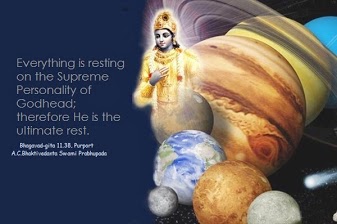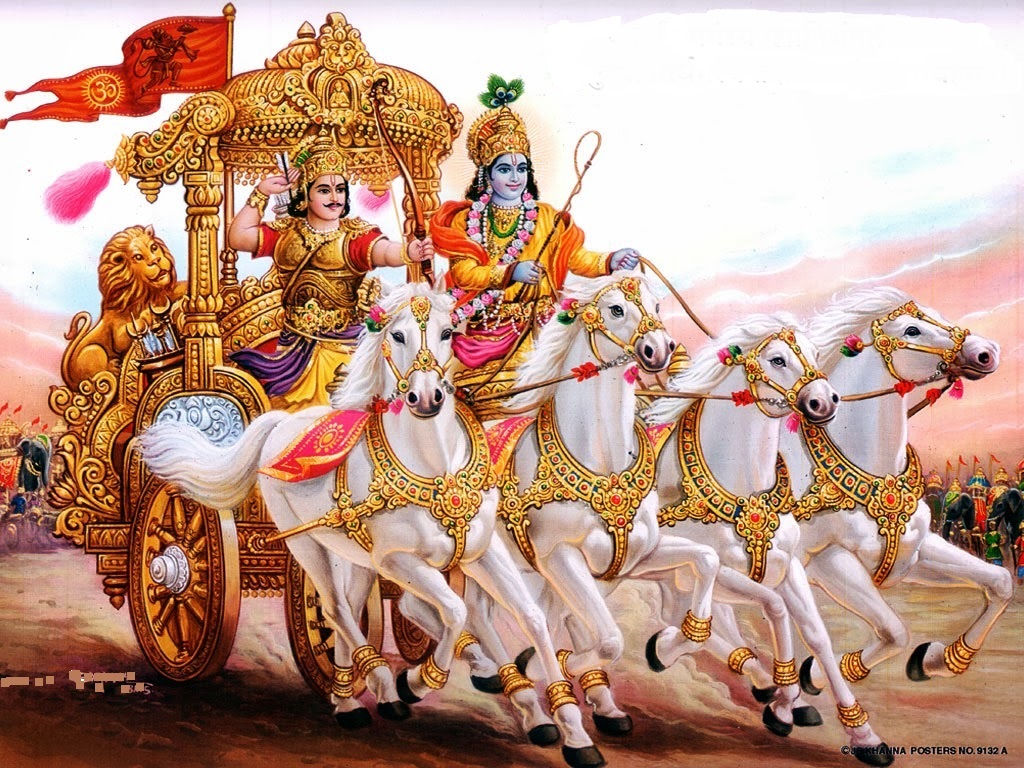The Spiritual Import of the Mahabharata and the Bhagavadgita : Ch-3. Part-4.
3: The World is the Face of God : 4.
So, there is some mystery in this world. We can call God only as a mystery, and nothing else; and we are involved in this world of appearances. We are a part of this world; therefore it is not given to us to completely reject the law of the world. A complete carelessness towards the rules that are prevailing in the cosmos would be to the doom of the individual, and that foolhardy aspiration for God would be paid back in its own coin as sorrow. Sri Ramakrishna Paramahamsa used to say that the devotee of God is not a foolish man; he is a devotee, but he is not foolish—he is wise. What is wisdom? Wisdom is nothing but an understanding of the nature of life. To understand what life is would be wisdom, and to mistake life for what it is not would be unwisdom.
Religions often have made the mistake of a transcendent ascent of the religious spirit, overcoming the laws of the world, facing God in the high heavens and preaching a renunciation of the things of the world to the extreme point, the breaking point we may say, until it would be not tolerated by the laws of the world. The person who renounces the world is a part of the world—we forget that, and there lies the mistake. The suffering of the seeker is due to a mistaken notion of himself in relation to the world outside. He has not yet become a part of God, though he is aspiring to be such, and the hands of God work through the forms of the world—that cannot be forgotten. Just as the power of the president or the prime minister may work through a small official, and we cannot ignore this official merely by saying that we are not concerned with him in any manner inasmuch as we are somehow or other placed in an atmosphere over which he has jurisdiction, the world has jurisdiction over our individuality.
The world is made up of several grades of density, to which we have already made reference. There are the various lokas—bhu-loka, bhuvar-loka, suvar-loka, mahar-loka, jana-loka, tapo-loka and satya-loka. The ascent of the spirit is through the ascent of these various densities of manifestation, the lokas; and we are in the physical realm, not in other realms. We are not in jana-loka, tapo-loka, satya-loka—we are in bhu-loka. The earth pulls us by its gravitation—water can drown us, fire can burn us, air can blow us, which means to say we are strongly conditioned by the physical world. In passing, I may mention the various samadhis mentioned by Patanjali in his sutras—savitarka, nirvitarka, etc. are nothing but the ascent of the soul through these lokas, savitarka being the ascent of the soul from the physical realm. How difficult it is to overcome the clutches of the physical world can be gathered from the importance that Patanjali gives in his Yoga Sutras to the preparations that have to be made for reaching the state of the first ascent of the soul. The first step in the ascent of the soul, which is savitarka, is the real beginning of the divine ascent, for which so much preparation—yama, niyama, asana, pranayama, pratyahara, dharana and dhyana—has been made. We are not suddenly jumping to the skies, and any mistake in the understanding of these intricacies would be to our ruin and grief.
To be continued ...





Comments